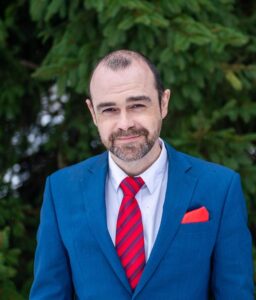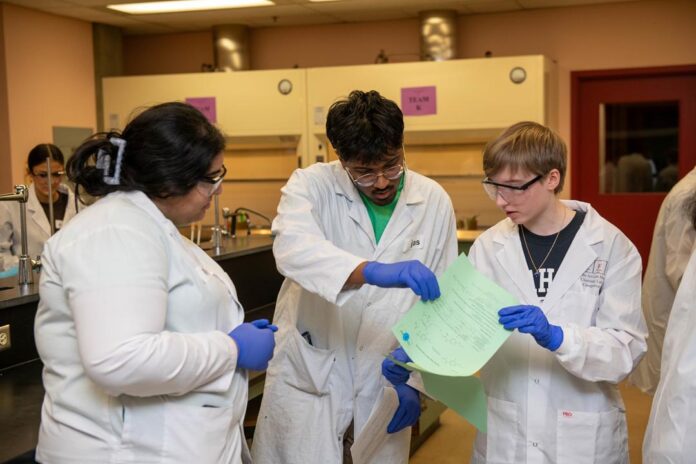According to Dr. Schinckus, research is an excuse to delve deeper into a topic. Students benefit from learning more about a specific subject because it teaches them how to think critically, evaluate complicated problems, and develop creative solutions — skills that are also useful in the real world.
He further added that learning from a textbook is easier, whereas applying it to a real-life scenario is a completely different story. Dr. Schinckus mentioned that research also helps students to think and problem-solve.
“Research is helping you to frame your thoughts and your knowledge in such a way that you come up with a solution, or you suggest a solution.”
Moreover, UFV’s courses provide students with hands-on research opportunities to develop creative solutions for problems in the real world. In an effort to encourage this, UFV is also working toward offering a special digital badge that validates a skill one might possess to honour the contributors of the published research projects.
“It’s a kind of micro credential demonstrating that you have skills in research and that [is shown] to the employer.”
Dr. Schinckus added that it is important to have faith in students and the research they do.
“We need to demonstrate that we trust research and we trust our students, and we trust our students doing research.”
While assignments are not necessarily research projects, they can lead or turn into one. A research project requires effort and initiative. Dr. Schinckus advised students to begin by communicating with their instructors. This involves expressing an interest in researching out of the box, something that is not being done in the classroom. Assignments can be descriptive and to the point, like writing a report on the Fraser Valley’s financial or economic situation, but research demands something more than just facts.
“You need to make a clear distinction between an assignment and a research project.”
He also added that students need to be curious and raise questions that show they want to research deeper on a subject. Instructors can be a guiding hand for students by pointing out areas to focus on or improve in.

Dr. Schinckus suggested that true research challenges students to form original ideas and ask questions no one has asked.
He also pointed out that research isn’t just about chasing after good grades — it’s more about nurturing curiosity; about personal and intellectual growth as a professional in a specific field. Dr. Schinckus reflected that one should be willing to put in the time to refine their ideas.
“If you want a project or an assignment to be transformed into something else, it will be beyond the marks, beyond the course.”
He shared that students who put in extra time and effort open doors to incredible opportunities, like presenting their work at conferences and getting awarded for it. These experiences not only enrich their CVs but also help them succeed in their future academic and professional endeavours.
Research opens up endless opportunities, but it all begins with a conversation. It encourages students to approach and talk to their instructors. While some projects may end after one paper, others can evolve into long-term collaborations.
Dr. Schinckus highlighted that research usually begins with a small question which, with persistence, can lead to a greater outcome. While some projects may end after one paper, others can evolve into long-term collaborations.
“One of my co-authors now started like that … seven years ago, [he] asked to work with me like this — and now we have around 20 papers together.”
Dr. Schinckus reminds students that research is about finding what really drives their interests, not simply about getting results.
“You never know where you can go.”
Interviews have been edited for length and clarity
Hello, I’m Gauri Sethi, a passionate staff writer at the Cascade responsible for writing content that resonates with the masses. Currently, I am pursuing business administration, but deep down, I am a person who loves expressing herself through writing.


